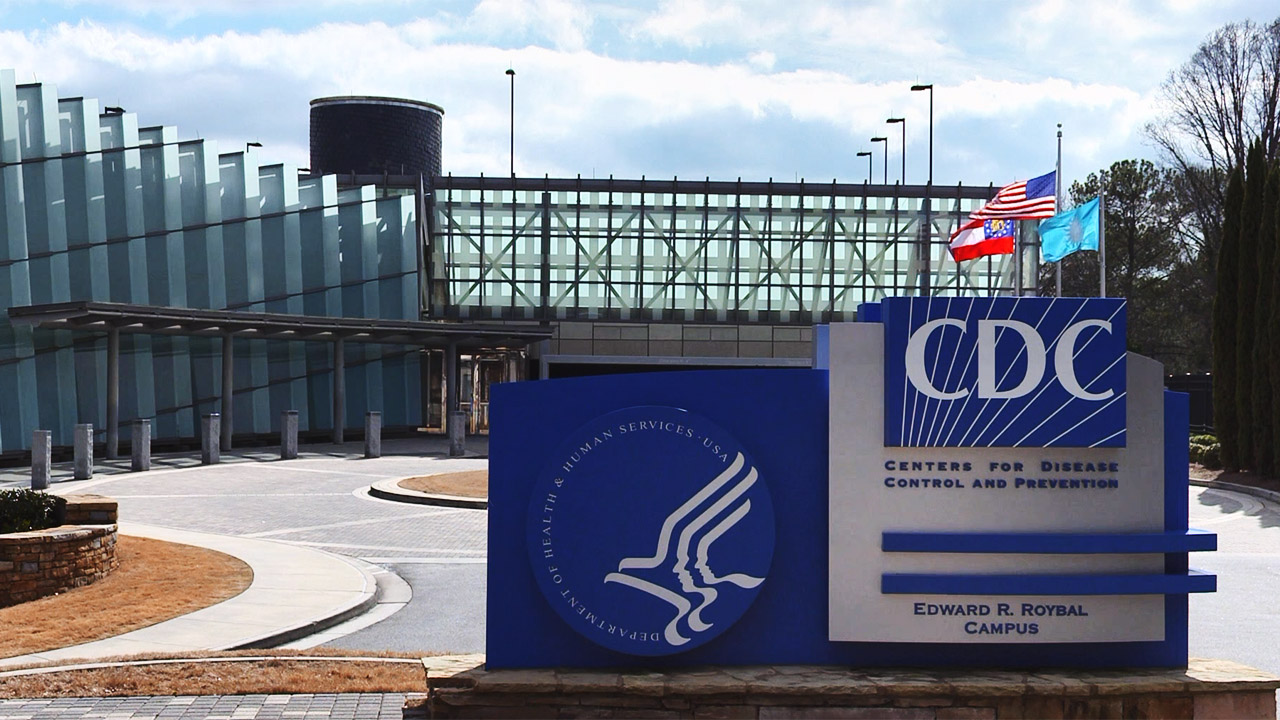Health
LGBT provisions cut from health care reform bill
The health care package President Obama signed into law Tuesday drew mixed reactions from LGBT rights advocates who praised the legislation for bringing sweeping reform, but expressed disappointment at the exclusion of some LGBT and HIV/AIDS provisions.
After he signed the $940 billion package in the East Room of the White House, Obama touted that the bill would set up insurance exchanges to extend coverage to 32 million uninsured Americans.
“But now what we’re going to do is create exchanges all across the country where uninsured people — small businesses — they’re going to be able to purchase affordable, quality insurance,” he said. “They will be part of a big pool, just like federal employees are part of a big pool.”
Rea Carey, executive director of the National Gay & Lesbian Task Force, praised the legislation. In a statement, she called it “a historic step toward ensuring access to health care for roughly 32 million people.”
“Millions of people across the country are suffering from a lack of adequate, affordable health care and experience unfair, inhumane treatment at the hands of the health insurance industry,” she said. “Lesbian, gay, bisexual and transgender people and our families are among those affected by this broken and imbalanced health care system, which this law aims to fix.”
But the legislation that made its way to the president’s desk lacked any of the LGBT-specific or HIV/AIDS language passed last year in the House version of the bill.
Gone from the final package was a provision eliminating the tax paid on domestic partner health benefits received under an employer plan, as well as language authorizing states to cover low-income people with HIV before they develop AIDS. Also missing is language providing for non-discrimination in health care and a provision authorizing the federal government to collect health care data on the LGBT population.
In a statement, Terry Hamilton, board chair of the Log Cabin Republicans, lambasted Obama and Congress for excluding those provisions from the final health care bill.
“It is disheartening to see the Democratic congressional majority continue to sideline LGBT agenda items — especially critical health care issues — in the name of political expediency,” Hamilton said. “How much longer do they expect gays and lesbians to support them as they continue to take a pass on every opportunity to support our community?”
Acknowledging the lack of those provisions, Carey said the Task Force would continue to fight for additional health care reform that specifically targets LGBT people and disadvantaged groups.
“Every April 15, same-sex couples and our families write an extra check to the [Internal Revenue Service] to pay for domestic partner and spousal benefits — the very same benefits opposite-sex married couples get tax free,” she said. “The federal government must add sexual orientation and gender identity-specific questions to all national health surveys in order to get a more accurate picture of the community’s needs.”
A House Democratic leadership aide, who spoke on the condition of anonymity, said the early treatment for HIV and data collection provisions weren’t included in the final bill because they had no budgetary implications and thus were ineligible under parliamentary rules.
Congress is passing health care reform through the reconciliation process so that only 51 votes are required in the Senate for passage for the final bill as opposed to the 60 that would be needed to overcome any filibuster. Under this process, any changes the House wanted to make to the previously approved Senate bill had to be part of a sidecar reconciliation package. But under reconciliation, only matters related to the budget are eligible for a vote.
As for the domestic partner tax elimination provision, which may have budgetary implications because it deals with taxation, the House aide deferred to the White House on why the provision wasn’t included in the final bill. A White House spokesperson declined to comment.
Although the LGBT and HIV/AIDS provisions unique to the House legislation weren’t included in the reconciliation package, the final bill has one provision aimed to help to HIV/AIDS community that was included in both the House and Senate versions of the legislation.
The language would enable AIDS Drug Assistance Program expenditures to count toward out-of-pocket expenses under Medicare Part D. People with HIV/AIDS on Medicare who receive help purchasing HIV drugs would thus have a lightened burden for other prescription drug costs.
Other provisions in the final bill — less explicitly directed at people with HIV/AIDS — would assist people living with the disease.
The final health bill eliminates discrimination based on health status or pre-existing conditions, such as HIV/AIDS. Additionally, the bill expands Medicaid eligibility for people with incomes below 133% of the federal poverty level, allowing more low-income people with HIV to access Medicaid and its prescription drug coverage.
Although the House LGBT provisions were missing from the final bill, advocates on Capitol Hill pledged to work to pass this language through other legislative vehicles.
In a statement, Jerilyn Goodman, spokesperson for lesbian Rep. Tammy Baldwin (D-Wis), an advocate of the LGBT legislative language, said the lawmaker looks forward to passing the health care bill and pursuing “every available option to pass the other LGBT provisions.”
In a message on the Human Rights Campaign web site, Brian Moulton, HRC’s chief legislative counsel, said his organization was “deeply disappointed” the LGBT language was omitted. Still, he noted that HRC would continue working for the provisions.
“While we are saddened that the House has abandoned provisions that would make care more accessible and affordable to our community, we recognize that the health reform measure will still help all Americans, including LGBT people,” he said. “Important reforms like eliminating pre-existing condition limitations and expanding Medicaid will significantly impact people living with HIV and AIDS.”
Health
UNAIDS to commemorate Zero Discrimination Day’s 10th anniversary
UN agency urges global action to protect human rights

As the world marks the 10th anniversary of Zero Discrimination Day; UNAIDS is sounding the alarm on the increasing threats to human rights, calling for renewed efforts to protect the rights of all individuals as a fundamental step towards ensuring health for everyone.
Established by UNAIDS a decade ago, Zero Discrimination Day aims to promote equality and fairness regardless of gender, age, sexuality, ethnicity or HIV status. The progress achieved over the past years is now in jeopardy, however, due to rising attacks on the rights of women, LGBTQ people and other marginalized communities.
UNAIDS Executive Director Winnie Byanyima emphasized the critical link between protecting human rights and safeguarding public health.
“The attacks on rights are a threat to freedom and democracy and are harmful to health,” she said in a press release. “Stigma and discrimination obstruct HIV prevention, testing, treatment and care and hold back progress towards ending AIDS by 2030. It is only by protecting everyone’s rights that we can protect everyone’s health.”
Despite challenges, there has been notable progress.
At the onset of the AIDS pandemic more than 40 years ago, two-thirds of countries criminalized consensual same-sex sexual relations. They are now decriminalized in two-thirds of countries. An additional 38 countries around the world have pledged to end HIV-related stigma and discrimination, contributing to positive changes that include 50 million more girls attending school compared to 2015.
To sustain and enhance these advancements; UNAIDS urges global support for women’s rights movements, LGBTQ rights, racial justice, economic justice, climate justice and peace initiatives. By standing with communities advocating for their rights, the U.N. aims to reinforce the collective effort towards a more inclusive and equitable world.
Zero Discrimination Day is observed on March 1.
Events and activities that will take place around the world throughout the month will serve as reminders of the essential lesson and call to action: Protecting everyone’s health is synonymous with protecting everyone’s rights.
“Through upholding rights for all, we will be able to achieve the Sustainable Development Goals and secure a safer, fairer, kinder and happier world — for everyone,” said Byanyima.
Health
New CDC report finds transgender women at higher risk for HIV
More than 1,600 people in seven cities surveyed

The Centers for Disease Control and Prevention issued a new study report this week that revealed that restricted by employment and housing discrimination and lack of access to needed gender-affirming healthcare for transgender women increasing the risk of contracting HIV.
Researchers reviewed data from a 2019-2020 survey, the National HIV Behavioral Surveillance Among Transgender Women, which found that the demographics of HIV/AIDS have been disproportionally high, especially among Black and Latina trans women, who had experienced employment and housing discrimination coupled with lack of access to gender-affirming healthcare.
The Jan. 25 Morbidity and Mortality Weekly Report was based on data studies of more than 1,600 trans women in seven major urban locales. Participants from Atlanta, Los Angeles, New Orleans, New York, Philadelphia, San Francisco and Seattle were chosen by referrals from people and community-based organizations who knew or were part of the local population of trans women.
The study’s researchers noted: “Employment discrimination occurs at the overlapping nexus of poverty, homelessness, incarceration, health insurance, disability, food insecurity and survival sex work. These issues are interconnected.”
The study stated that trans women’s inability to access quality healthcare, including gender-affirming treatment or access to PrEP, and can expose them to potential incarceration as many turn to “survival sex work” and violence, which increases the risk of contracting HIV.
The study’s author’s pointed out: “When economically marginalized transgender women are refused employment, this refusal cyclically contributes to economic hardships. This analysis …demonstrates the importance of transgender women working and living with dignity and without fear of unfair treatment.”
Health
A Whole New Perspective on Well-Being
The Mather’s team recognizes that everyone’s wellness journey is completely unique to their life experiences and influences.

It’s easy to spot the distinctive, elegant silhouette of The Mather, a Life Plan Community for those 62+ opening this spring in Tysons, Virginia. What is not apparent to the naked eye is The Mather’s unique wellness philosophy, which is literally built into the community.
The Mather’s team recognizes that everyone’s wellness journey is completely unique to their life experiences and influences.
Nature is one of the important factors that contribute to well-being. So The Mather is incorporating biophilic design—a design approach to facilitate access to nature or things that replicate natural patterns. This can include interior spaces with sightlines to a garden, choosing natural wood and stone as interior materials, or incorporating fragrant flowers and plants indoors to spark memories and provide tactile opportunities such as gardening.

“Providing biophilic design within interior settings connects residents to the natural world,” says Mary Leary, CEO and President of Mather, the organization behind The Mather. “Research shows that a connection to nature provides positive benefits to mental states and overall well-being. At The Mather, biophilic design is the intersection of buildings and programs with nature in an urban setting.”
“The Mather is attracting a diverse group of older adults,” says Mary. “As a result, we aim to incorporate wellness practices from around the world, including Wyda movement theory of the Celtic Druids, which helps people achieve harmony with nature and contentment through mindfulness.” This holistic regenerative approach is similar to Qi Gong and yoga, while born in a different part of the world. Mather Institute has a special focus on mindfulness to support older adults’ practice of present moment awareness, which can lead to increased overall well-being, compassion, and joy.
A very different example of a wellness offering at The Mather is the Gharieni Welnamis spa wave bed, which uses computer-controlled vibrational therapy and audio frequencies to train the brain to relax. “The bed increases mindfulness, concentration, and creativity—all of which support our mission of creating Ways to Age Well,SM” says Mary.
These and other personalized ways to wellness will ensure that residents of The Mather can choose from seemingly countless ways to focus on their well-being. In other words, the sky’s the limit!




















